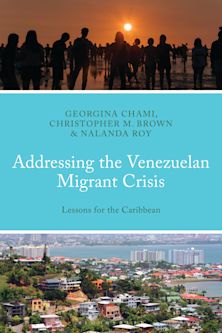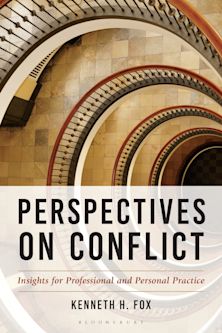- Home
- ACADEMIC
- Politics & International Relations
- Politics - Other
- The Professions and Civic Life
The Professions and Civic Life
Gary J. Schmitt (Anthology Editor) , Christopher Caldwell (Contributor) , Paul A. Cantor (Contributor) , James W. Ceaser (Contributor) , Austin L. Hughes (Contributor) , Rita Koganzon (Contributor) , Michael J. Lewis (Contributor) , Aaron MacLean (Contributor) , Wilfred M. McClay (Contributor) , Steven E. Rhoads (Contributor) , Daniel P. Sulmasy (Contributor) , David Tucker (Contributor) , Nathan Tucker (Contributor) , Adam J. White (Contributor)
The Professions and Civic Life
Gary J. Schmitt (Anthology Editor) , Christopher Caldwell (Contributor) , Paul A. Cantor (Contributor) , James W. Ceaser (Contributor) , Austin L. Hughes (Contributor) , Rita Koganzon (Contributor) , Michael J. Lewis (Contributor) , Aaron MacLean (Contributor) , Wilfred M. McClay (Contributor) , Steven E. Rhoads (Contributor) , Daniel P. Sulmasy (Contributor) , David Tucker (Contributor) , Nathan Tucker (Contributor) , Adam J. White (Contributor)
You must sign in to add this item to your wishlist. Please sign in or create an account
Description
Professions are institutions which, through their small size, self-governing elements, and sense of social mission, can assist in maintaining a sound civic culture. As mediating institutions in our democratic society that are neither entirely birthed by the state nor are entirely private, the individual professions—such as the legal and education professions, journalism, economics, architecture, or the military—arguably present practical avenues through which to teach civic behavior and to restore Americans’ broken trust.
This volume on the professions and civic life undertakes a unique and timely examination of twelve individual professions to see how each affects the character of American citizenship and the civic culture of the nation through their practices and ethos. Among the questions each essay in the volume addresses are: What is distinctive—or not—about the specific profession as it came to be practiced in the United States? Given the specialized knowledge, training, and sometimes licensing of a profession, what do the professions perceive to be their role in promoting the larger common good? How can we bring professionals’ expert knowledge to bear on social problems in an open and deliberative way? Is the ethic of a particular profession as it understands itself today at odds with the American conception of self-government and a healthy civic life?
Through analysis of these questions, each chapter presents a rich treatment of how the twelve longstanding professions of political science, teaching, the law, the military, economics, medicine, journalism, literature, science, architecture, music, and history help support and challenge the general public’s civic behavior in general and their attachment to the American regime in particular.
Table of Contents
Chapter 2Educating for Liberty? The Shortcomings of Contemporary Civic Education Theories
Chapter 3Tocqueville’s “Most Powerful Barrier”: Lawyers in Civic Society
Chapter 4America’s Military Profession: Creating Hectors, not Achilles
Chapter 5Economists and Res Publica: The Virtues and Limits of Economic Analysis
Chapter 6Physician, Heal Thyself: Doctors in a Pluralist Democracy
Chapter 7Journalism and Citizenship
Chapter 8The Literary Profession and Civic Culture
Chapter 9The Practice of Science in a Democratic Society
Chapter 10Architects and Citizenship
Chapter 11Music and Civic Life in America
Chapter 12History in the Age of Fracture
Product details
| Published | 10 Jun 2016 |
|---|---|
| Format | Ebook (Epub & Mobi) |
| Edition | 1st |
| Extent | 242 |
| ISBN | 9781498536219 |
| Imprint | Lexington Books |
| Illustrations | 2 graphs |
| Publisher | Bloomsbury Publishing |
About the contributors
Reviews
-
This volume demonstrates how members of especially significant professions have contributed to our civic decline, but can also lead the needed renewal. Not every reader will agree with these authors’ diagnoses, nor their proffered cures, but that very debate would be a healthy reminder of our mutual civic obligations. Anyone who cares about America’s national civic health—and that should be everyone—ought to read this book.
David E. Campbell, University of Notre Dame
-
Since professionals are among the most powerful citizens, strengthening citizenship requires rethinking the professions. The lucid, thoughtfully argumentative, intellectually diverse essays in this volume span an extraordinary range of professions and should provoke them all to reconsider their purposes and values.
Peter Levine, Tufts University



































